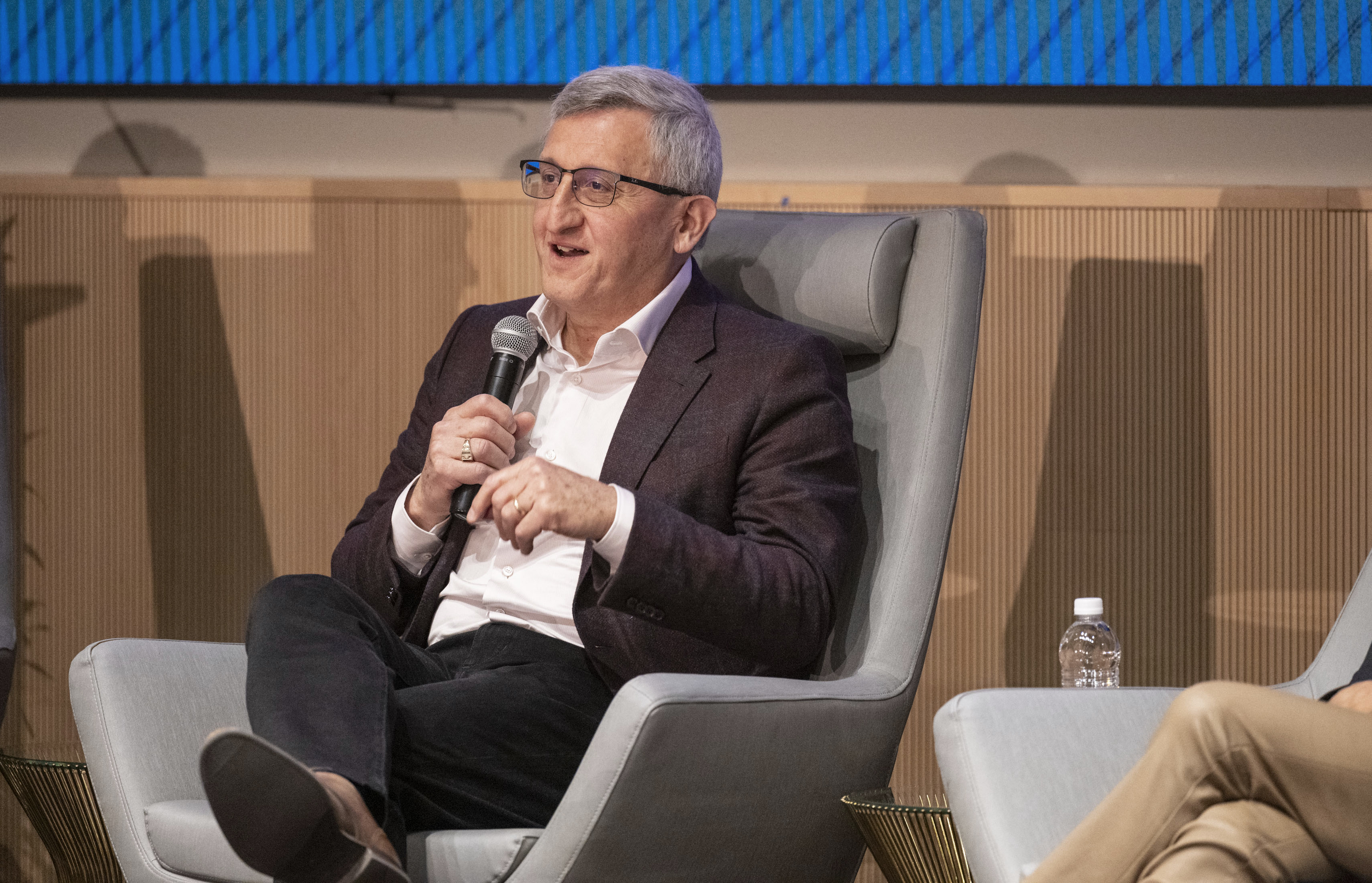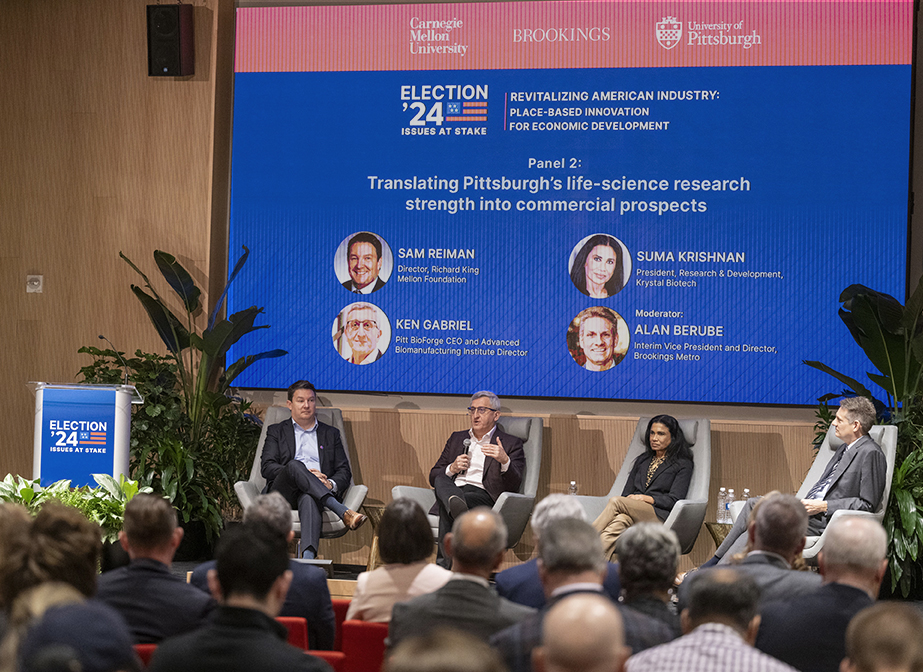
Pittsburgh’s strength in life sciences research is well established, but turning breakthroughs in the lab into companies that spur the local economy is a challenge of its own. In a panel discussion on April 24, local leaders highlighted how Pitt BioForge, the biomanufacturing innovation facility the University of Pittsburgh is building at Hazelwood Green, will help promising life sciences projects overcome obstacles to commercial success.
The panel was part of “Issues at stake in the 2024 election: Revitalizing American industry,” an event hosted by the Brookings Institution, Carnegie Mellon University and the University of Pittsburgh. There, government officials and leaders in higher education, industry and philanthropy discussed how, with the help of public policy, advanced industries can increase economic opportunity in Pittsburgh.
At the event, Rick Siger, Pennsylvania’s secretary of the Department of Community and Economic Development, identified life sciences as an industry where Pittsburgh has a “right to win,” or an opportunity to successfully compete in the market thanks to local expertise.
Ken Gabriel, the inaugural chief executive officer of BioForge, explained how the facility will play a key role in stimulating local life sciences activity with an aggressive approach to innovation in biomanufacturing. The plan is to identify life sciences projects that have the potential for big impact but have been limited by hurdles in manufacturing—for example, precision biologic medicines like gene and cell therapies that are currently prohibitively expensive to manufacture at the necessary scale.
After choosing a project, BioForge will put together an interdisciplinary team and provide it with resources to spend 18 to 36 months solving the problem. If the team hasn’t successfully demonstrated they can address the manufacturing problem for the treatment or product in that time, BioForge will clear the decks and give another project an opportunity. The idea is to get as many “shots on goal” as possible, Gabriel said.
The research results at Pitt continue to advance, so BioForge needs to be agile, Gabriel said. "What seems really promising today might be in the dustbin tomorrow.” BioForge expects to have 12 to 18 of these projects going on at a time.
Gabriel shared the stage with Sam Reiman, director of the Richard King Mellon Foundation, which is supporting BioForge with $100 million, its largest-ever gift for a single project. "Life sciences has been an area of interest going back to our founding," Reiman said. The foundation wants to support a thriving life sciences ecosystem, so a future biotech entrepreneur who is educated and trained here "doesn't have to think twice about whether they want to stay in Pittsburgh.”

On the panel with Gabriel and Reiman was Suma Krishnan, president, research and development, for Krystal Biotech, which moved to Pittsburgh after failing to find available lab space in the Bay Area. Last year, the company received Food and Drug Administration approval for the first-ever gene therapy for the treatment of epidermolysis bullosa, a rare skin condition. "Unfortunately, when we started we didn't have BioForge," Krishnan said.
Asked what government policy would be helpful to Pittsburgh’s economic success, Gabriel noted that many current regulations are geared toward traditional therapeutics that could be produced billions at a time, not the precision medicines and rare disease treatments for which BioForge hopes to pave the way. Reiman pointed out that ElevateBio, the Massachusetts-based company that will be the anchor tenant at the BioForge facility, will provide helpful on-site expertise about regulations for other teams working at BioForge.
The event, which also featured panels on advanced manufacturing and robotics, opened with remarks from Carnegie Mellon University President Farnam Jahanian, Pitt Chancellor Joan Gabel and Brookings Institution President Cecilia Elena Rouse.
Gabel emphasized the decades of successful collaboration among institutions in Pittsburgh. As the partners work together to create the workforce of the future, she said that Pitt’s 237-year history has laid a foundation that allows the University to be agile.
Photo Credit: Kevin Lorenzi, Carnegie Mellon University Communications & Marketing
